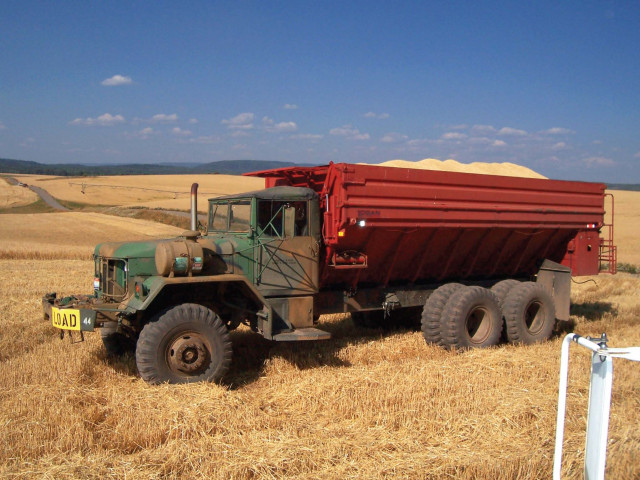Millers blame Sindh govt for wheat price hike
Meeting remains inconclusive, talks will continue today.

Pakistan Flour Mills Association (PFMA), Sindh Circle, Chairman Mian Mehmoodul Hasan has blamed the Sindh government for the increase in flour and wheat prices in Karachi, after the imposition of a ban on inter-district movement of the commodities.
Hasan on Tuesday met with Sindh Food Department officials and demanded that the provincial government remove the ban from inter-district movement of flour and wheat. The meeting remained inconclusive and hence another meeting has been scheduled for Wednesday morning.
Hasan also dispelled the impression that flour mills are making more profits, following the increase in wheat prices. “Government officials are delaying a decision on removing the ban, while wheat prices in Karachi are increasing by Rs100 per day on a 100kg bag,” he said.
Wheat prices increased to Rs2,450 per bag from Rs2,350 on Monday after the imposition of the ban on Sunday and it is expected the increase will continue in the days to come, he added.
In Karachi, the wheat stock of flour mills will end in one or two days, which will result in flour shortage in the biggest consuming centre of the province, he said.
Replying to a question, Hasan said flour mills are not involved in pushing up wheat prices. “Our business is to buy and crush wheat to make flour. Prices of wheat are not in our control so the rise in wheat prices will lead to an increase in flour prices,” he said.
On the other hand, a Sindh government official told The Express Tribune that the ban was imposed to monitor wheat movement in the province and to give the right price to the farmers.
The rate at which the government procures wheat from a grower is Rs950 per maund (40kg). The Sindh government says the ban will help in procuring wheat at the fixed rate but flour mills reject the point and say that this is just a tactic to bring middlemen in the procurement process.
The low demand of wheat will compel the growers to sell the commodity at lower rates to the middlemen who will then sell it to the government with at least Rs50 per maund profit, Hasan said.
Published in The Express Tribune, April 13th, 2011.



















COMMENTS
Comments are moderated and generally will be posted if they are on-topic and not abusive.
For more information, please see our Comments FAQ